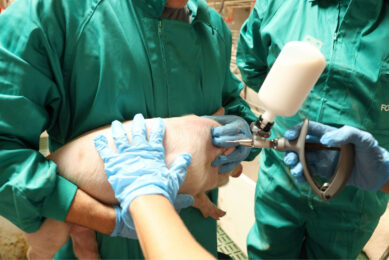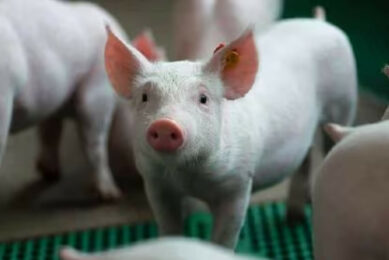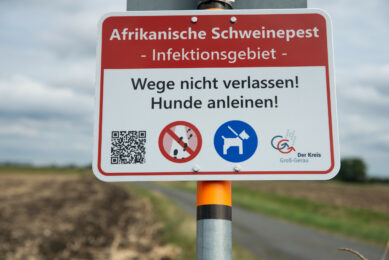Responsibility sharing / cost sharing – the future of animal health in Europe?
There are active consultations going on in the UK on responsibility sharing, between the livestock industry and government – and the inevitable cost sharing. It is part of an EU Animal Health Strategy initiative but what is happening in other European countries?
There are active consultations going on in the UK on responsibility sharing, between the livestock industry and government – and the inevitable cost sharing. It is part of an EU Animal Health Strategy initiative but what is happening in other European countries?
In the UK, we feel it is driven by the wish for government to not to have to pay for outbreaks of notifiable disease in the future, such as Foot-and-Mouth disease (FMD), Classical Swine Fever (CSF) and the almost annual outbreaks of avian influenza. The consultation has slightly changed now from just notifiable diseases, to so-called ‘exotic diseases’ (blue tongue in sheep and cattle would be an example) and even endemic diseases or diseases that are always present in a country.
Goal posts shifting?
Are the goal posts just shifting or is this an opportunity to genuinely look at how diseases are to be controlled in the UK and Europe, or is it just a strategy to shift the expense of disease control and compensation onto industry rather than cash-strapped governments and the taxpayer in general?
The outbreak of FMD in the UK in 2001 was very expensive and spilled over into neighbouring countries like Ireland, Holland and France due to animal movement. Our swine fever outbreak was localised and in the main, so was the one in Holland.
Wild pig populations
It will keep on recurring in the EU, where wild pig populations act as a reservoir. However, we are seeing the shift in the patterns of disease e.g. blue tongue moving northward and avian influenza coming in each year as birds migrate particularly from more heavily infected areas in the East. We are fortunate that most of these outbreaks have been contained.
From these examples we can see that many are not just national problems. The UK as an island should be more resistant to invasion of various diseases but seems to have its fair share.
Hopefully, the 2007 FMD outbreak was an unfortunate one-off occurrence and lessons have been learnt, but the disruption it caused to a struggling UK pig industry has been put at £17.1 million (€21.5 million) from restrictions in movement and lost sales, particularly of breeding stock, without even infecting pigs.
Responsibility
It is the responsibility of governments to control notifiable diseases. We have seen when industry works with government to advise them on control matters etc, a very positive outcome can be achieved. With regard to notifiable diseases, a programme of EU control and cooperation could be achieved.
How you would define and include exotic diseases is more questionable or how it could be extended to endemic diseases is as yet unclear. The whole concept of cost sharing also brings in its own difficulties. There are many industries, poultry, pigs and beef, which could be quite straightforward, i.e. a levy on slaughtered animals but what about breeding animals or weaner/store pig producers.
Dairy and fish pose different problems. Also, do industries contribute to diseases in other species, or can they ring fence it for their own? What about insurance?
What are other EU countries doing and where do they feel the best options lie?











